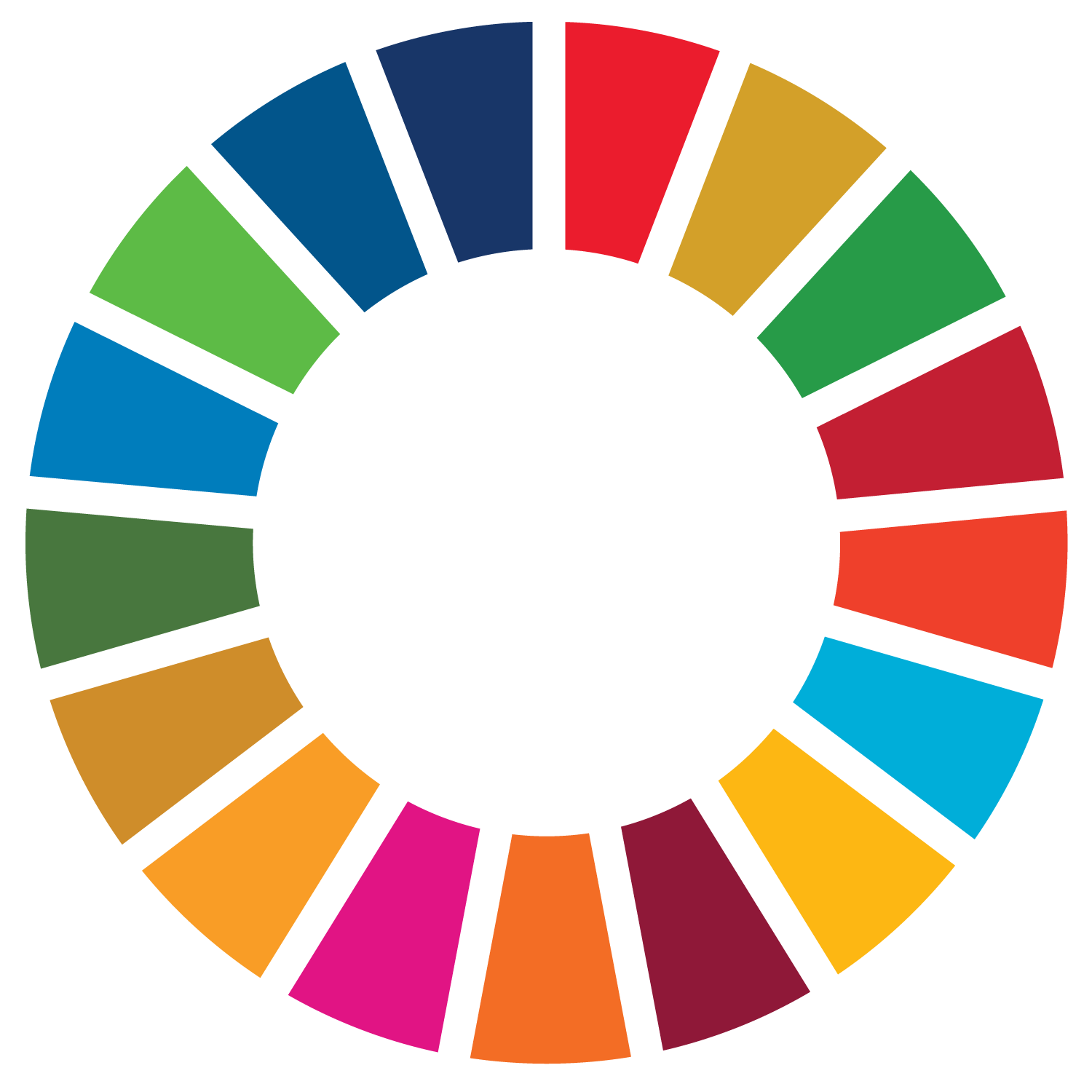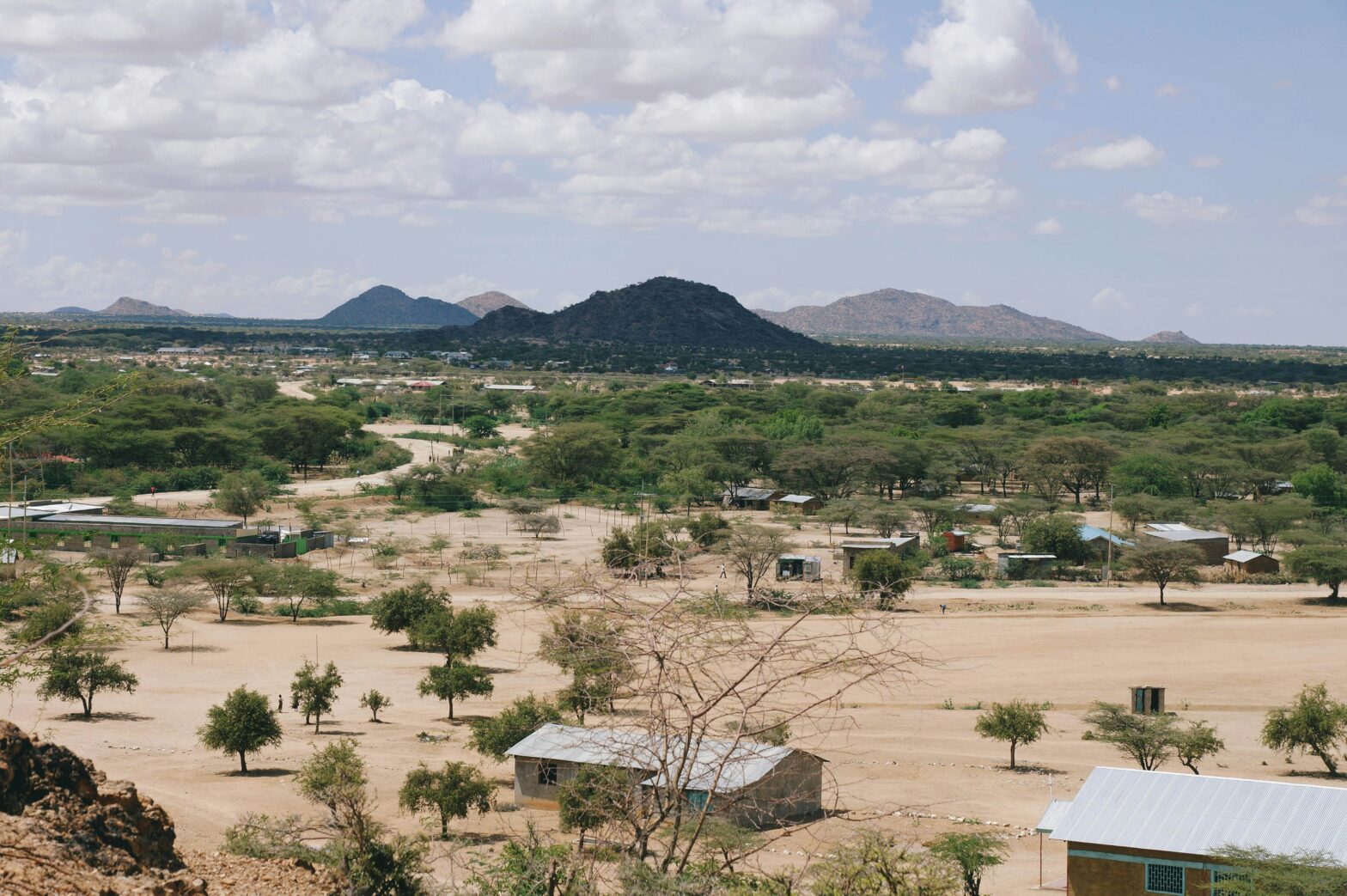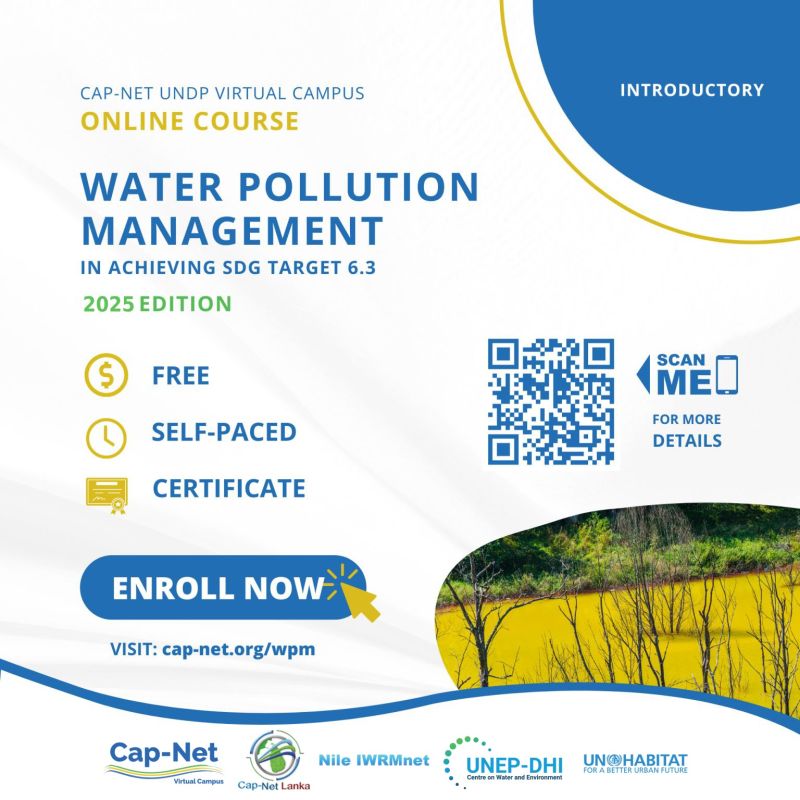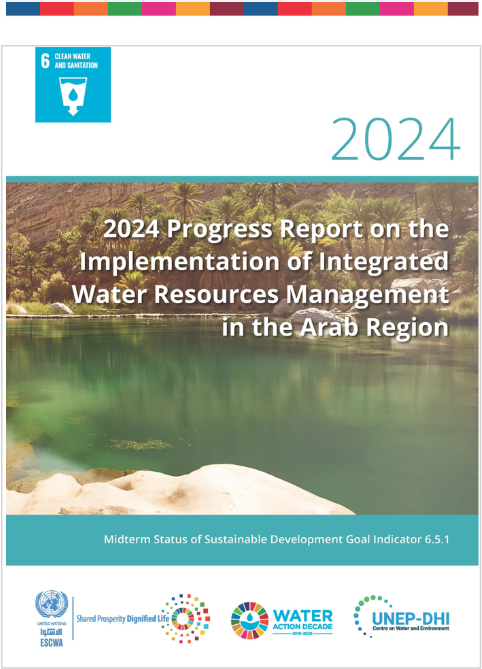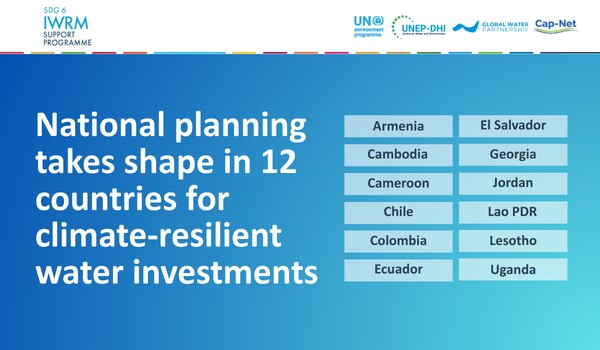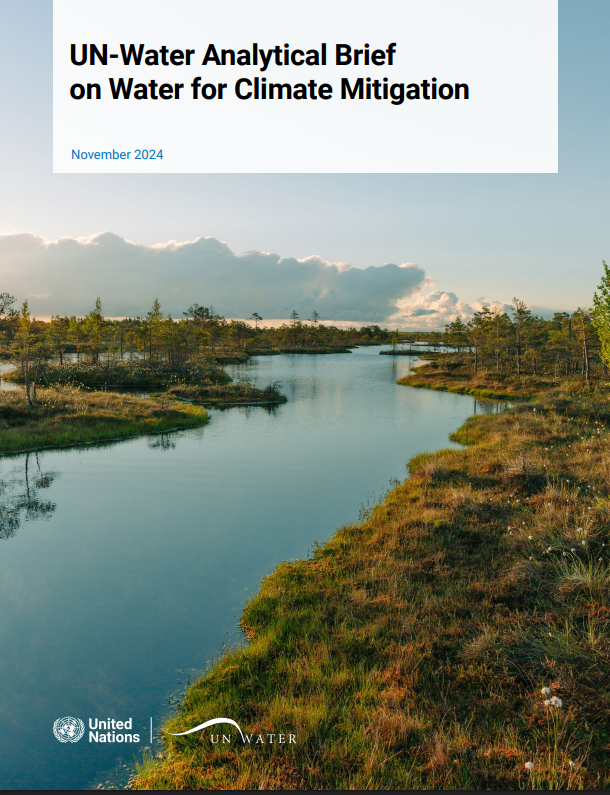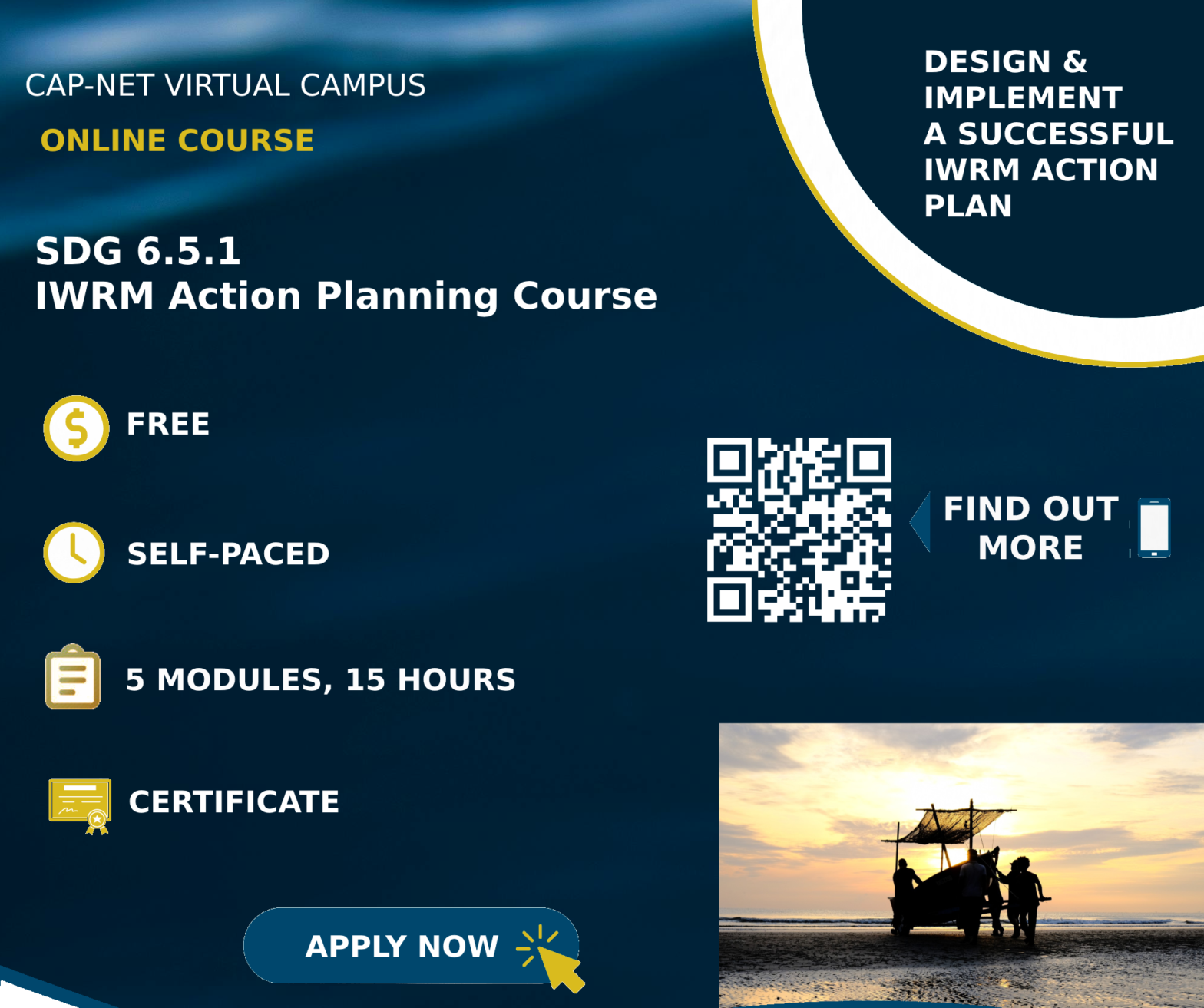UNEP-DHI is providing technical assistance to the pilot project Water Resources Information System (WRIS) provides an information system tailored for Kenya’s arid and semi-arid lands (ASALs), enabling county governments and national agencies to better plan and manage water resources in the face of worsening climate pressures.
Author Archives: isno
2025 edition: Online course on Water Pollution Management in Achieving SDG Target 6.3
The continued deterioration of water quality poses one of the biggest threats to human and ecosystem health worldwide. This free online course provides participants with key insights on water pollution drivers, stakeholder involvement, and strategic planning for pollution prevention and management needed to tackle this issue.
New Progress Report on IWRM Implementation in the Arab Region
The new 2024 Progress Report on the Implementation of Integrated Water Resources Management (IWRM) in the Arab Region highlights the critical need for effective water resource management to achieve sustainable development goals. It serves as a comprehensive guide for policymakers, practitioners, and stakeholders, presenting key challenges and showcasing successful case studies from the region.
2024 Progress Report on the Implementation of Integrated Water Resources Management in the Arab Region
The 2024 Progress Report on the Implementation of Integrated Water Resources Management (IWRM) in the Arab Region highlights the critical need for effective water resource management to achieve sustainable development goals. It serves as a comprehensive guide for policymakers, practitioners, and stakeholders, presenting key challenges and showcasing successful case studies from the region.
New vacancy: Part-time student assistant with strong communication profile
UNEP-DHI Centre is currently looking for a part time Student Assistant with a strong communications profile. The successful candidate will lead the implementation of our communication plan, working as a core member of the UNEP-DHI team in Denmark. Application deadline is the 22nd of June 2025.
National planning takes shape in 12 countries for climate-resilient water investments
This year, twelve countries are undertaking multi-stakeholder processes to answer that question as they embark on national action planning, assisted by the SDG 6 IWRM Support Programme, implemented by GWP in coordination with the UNEP-DHI Centre, under the leadership of UNEP.
The goal: to design actionable, investment-ready action plans that mobilise resources from a range of funding sources — including national budgets, multilateral development banks, the private sector, and bilateral funders.
UN Water Analytical Brief on Water for Climate Mitigation
The UN-Water Analytical Brief on Water for Climate Mitigation discusses the dependency of climate mitigation on the use of water and the effective management of water resources and related services to ensure sustainable and effective outcomes.
Global Wetland Watch – The crucial role of Wetlands in South Africa
The Global Wetland Watch (GWW) has partnered with selected pilot countries to ensure GWW outcomes are designed to serve national needs. South Africa is one of these pilot countries that has joined the discussion and co-development with the GWW team. As part of this in-country engagement, the GWW team has just returned from a 10-day mission to South Africa to conduct workshops and field trips to understand national wetland challenges and come up with new solutions to manage and restore wetlands globally.
SDG 6.5.1 IWRM Action Planning Course – 2025 edition
Do you want to learn how to design and implement a successful government endorsed IWRM action plan? Sign up to this free online course for a clear, step-by-step guide.
New vacancy: Student assistant to work on DHI’s Global Hydrological Model
DHI is looking for a part time Student Assistant to support operation and maintenance for their large-scale hydrological model, DHI-GHM. The application deadline is 17 January 2025.
Global Partnership on Plastic Pollution and Marine Litter (GPML)- digital tools to move towards a future without plastic pollution
The UNEP-DHI Centre is supporting the United Nations Environment Programme (UNEP) in its efforts to curb plastic pollution by developing digital solutions to estimate plastic pollution in rivers and freshwater ecosystems, as well as in facilitating data sharing on plastics across organisations and nations.
2024 edition of online course: Gender and Integrated Water Resources Management (IWRM)
Gender and Integrated Water Resources Management, developed in partnership with UNEP -DHI, Cap-Net UNDP, Gender Water Alliance (GWA) and Global water Partnership (GWP), is an online, free and self-paced course that offers six modules designed to help practitioners integrate gender in all aspects of sustainable water management.
